Joe Celcis’ Journey From Spittin’ Rhymes to Spiritual Counselor
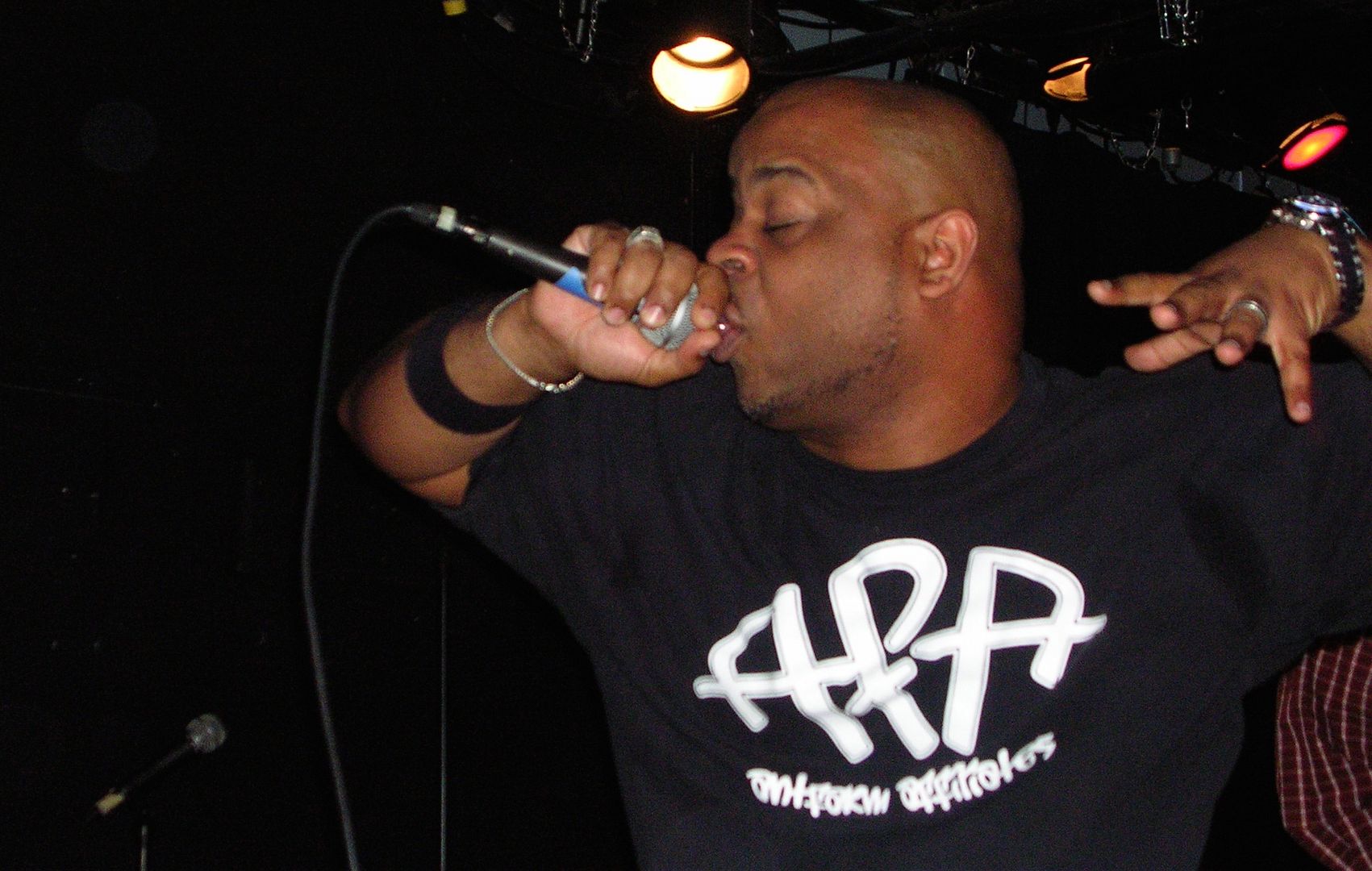
The year is 2009, and Joe Celcis, going by the performance moniker Nemesis Alpha, is commanding the stage at Cousin Larry’s in Danbury, CT during an Enter The Cypher event. Posters for previous shows litter the walls of the venue, and while there’s a pool table off to one side, everyone is paying attention to Celcis, and his partner in rhyme, Othello, as the two emcees, who are known as the hip-hop duo d_Cyphernauts, trade verses.
Celcis had to overcome incredible odds to enjoy this moment, having survived a car accident back in his college days that not only saddled him with a traumatic brain injury, but also revealed he had a pituitary tumor that needed to be removed, as it had the potential to lead to permanent blindness, or hearing loss.
For most this would be a textbook comeback story, but for Celcis – who was seeing plenty of textbooks in his daily life as a high school English teacher at Westhill High School in Stamford, CT – it was just an early chapter. His journey would go on to include more major medical hurdles, an unfortunately timed album release, and a deep dive into his previously shaken faith that would lead him to found his own ministry.
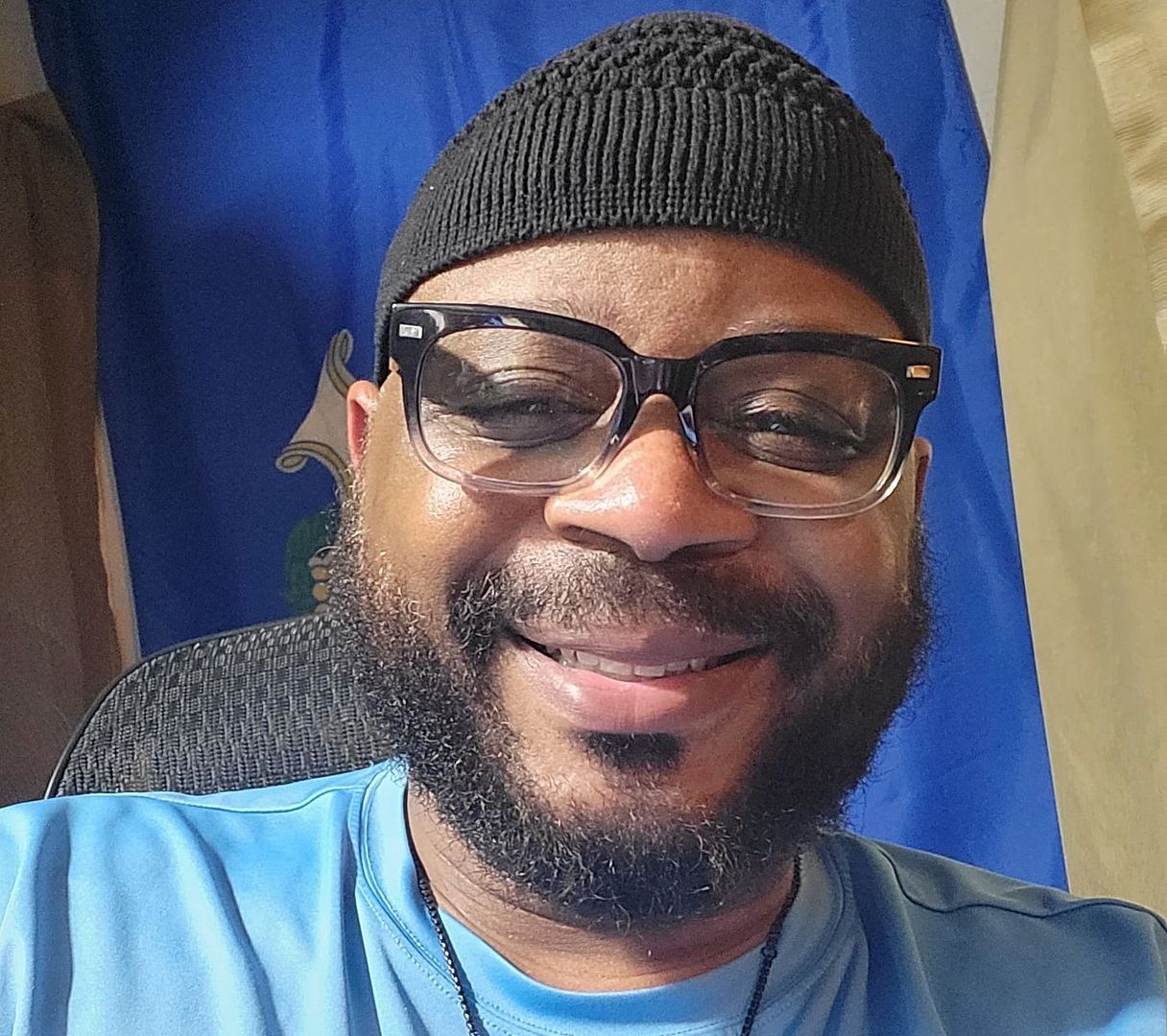
Baptism In The Bronx
Celcis grew up in The Bronx in a traditional Haitian household, and he says with that, “The Catholic experience was one that was a heavy influence in my life.”
While he was still a typical kid who played video games, and read comic books, he also did all the things a young man being raised Catholic would do, including being baptized, spending time as an altar boy, and attending Catholic school throughout childhood. Because of this, he says, “I accepted everything within the Catholic belief system as being true. I never thought about faith as something beyond this thing that existed, and that I had to believe in. So if I had to believe in it I was gonna believe in it, the same way I believed in the American dream, the same way I believed in Hulk Hogan’s, ‘Eat your vitamins.’”
He continued, “It wasn’t until I got to college, and I began to study under the Jesuits at Fordham, that the idea of questioning my beliefs became something that I was taught was OK. When I began to get exposed to things that tested my beliefs I began to notice that I was left with questions, uncomfortable questions, about my beliefs, my faith, the role of the Catholic church in things that happened to the indigenous people of the world, and its role in slavery, and the trans-atlantic slave trade, and colonialism. I just became more and more disturbed.”
His questions continued, and as he began to form his own socio-political ideas he found his views to be more moderate liberal. This, he thought, left him outside the church. “I just began to feel like I didn’t fit in. I tried to stay involved, but I just found myself not going to church like I used to. I still prayed a lot, but I just found myself disillusioned.”
After years of blind faith, he says his concept of God was no longer the image he grew up with. “I didn’t feel like the definitions that had been explained to me did an adequate job.”
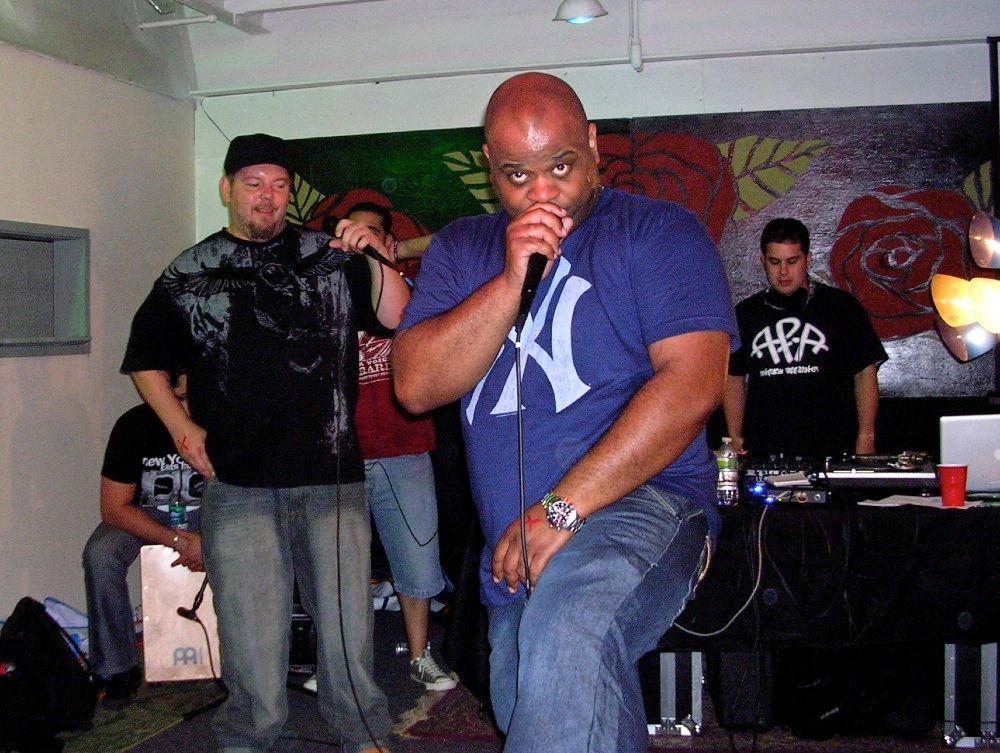
Celcis wouldn’t have much time to dwell on his faith, however, as in 1995, his junior year at Fordham, he was involved in a major car accident. The accident left him with a traumatic brain injury, but in a very surprising silver lining, the CAT-scan that was done of his head revealed he had a pituitary tumor that needed to be removed immediately. Had it remained, he would’ve likely either gone blind, or lost his hearing.
While it’s rare to be thankful for a car accident, Celcis notes, “If it wasn’t for the car accident, I would have never had the chance to be in the CT-scan, and then get an MRI for them to see what was going on.”
When Adulthood Calls
After college Celcis began teaching at Westhill High School in Stamford, CT, started a family, and as he puts it, he “let life happen.” As he let life happen he became involved with the United Nations, and UNESCO (United Nations Educational, Scientific and Cultural Organization), studying the trans-atlantic slave trade.
During this time, making music became a passion, as well, and he and Othello – which is the performance name of fellow Westhill High School teacher Dave Wooley – formed d_Cyphernauts.
While making music, traveling, and meeting other artists, the concepts of God, and faith were subjects that Celcis started thinking about for the first time since college.
“I was seeing that the kind of faith that we were brought up to have, this kind of blind following faith had failed so many people, and was actively failing people. As people died, or tragedies happened, people didn’t have the spiritual resiliency.”
He came to a conclusion – “It wasn’t that God failed them,” he says, “The interpretations that they were given of God failed them.”
He also came to a realization about himself – “Over time I became one of those people. I had faith, but I didn’t feel I belonged to any spiritual family.”
Much like when Celcis previously investigated his faith, he was once again hit by a surprise health issue, as in 2014 he experienced a stroke. It wasn’t a traditional stroke, however, it happened because the swelling, and constricting of his blood vessels simulated a clot.
He says that while he was recovering from his stroke, “I just started questioning everything, and asking myself what kind of spirituality did I want to have.”
Finding Some Answers
Celcis was questioning everything, but he wasn’t just asking questions, he was actively seeking answers. “I started looking to philosophy, looking at humanistic philosophy, looking at various religions around the world, and various spiritual belief systems.”
Through that search he discovered something that drew him in. “I found myself leaning more towards African spirituality, the kind of spirituality that is in African culture, the idea of ancestors.”
This is when Celcis started to develop his own concept of God.
“I came up, over time, with the idea that God manifests by culture. So there is a God. I don’t believe God is a he, or she, I believe God is above gender, but God will have aspects, and depending on where you are, or where your people decided to settle on earth, God will manifest appropriately to your culture. Otherwise, why would God create diversity among cultures?”
d_Cyphernuats’ Long-Awaited Album
While Celcis was diving deep into his spirituality, he was also still teaching, performing, and recording. In 2018, after years of people asking, “When’s the album gonna drop?” d_Cyphernuats finally released Room 222, which was named after the room at Westhill High School where Celcis taught.
Then everything stopped.
Celcis became incredibly ill immediately after Room 222 was released, and the culprit was industrial mold at Westhill High School. In a cruel bit of irony, the room he and Othello named their album after would be the reason they wouldn’t be able to do any shows to promote the release.
An array of issues hit Celcis, including chronic inflammatory response syndrome. “I remain sick,” he says, “I get weekly allergy shots. I have swelling flare ups.”
His illness also affected his ability to be on stage. “I couldn’t perform,” he says, “I just had too much pain. I had too much brain fog.”
The problems still affect him to this day. “I can’t remember my lyrics. When I perform now I have to perform with a binder with my lyrics printed out, and give that disclaimer to the audience, ‘Please forgive me. As an emcee it’s either I use this to perform, or I retire.’”
In addition to his on-stage routine having changed, his daily routine changed considerably, as well. Celcis now takes “at least ten different medications,” saying the combination of afflictions is “basically like having asthma, Lyme disease, and fibromyalgia all together.”
What he refused to let any of his ailments do, however, was stop his spiritual journey.
A Man For Others
During his recovery from the mold-induced illnesses, which included being unable to return to the classroom until this year, Celcis made a life altering decision – “I decided I wanted to somehow become some kind of a counselor, like a spiritual counselor. I had no desire to become a preacher, or a pastor. I got the idea that I wanted to start some kind of ministry, but that would be completely dedicated to education, and counseling.”
The next question was – how?
“Because I don’t follow a certain type of sect of Christianity, what I learned was the doors at traditional religious schools, Christian schools, are closed.”
One door, however, was open, and it was the door to the Universal Life Church.
“As I looked into the organization I realized that the Universal Life Church is really big, and has been really big in supporting LGBTQ marriages when they weren’t cool, interracial marriages when they weren’t legal. When other church organizations were like, ‘You can’t do this,’ Universal Life Church was like, ‘We’ll stand behind our ministers.’ I said that works for me.” Celcis put in the work, and was ordained by the Universal Life Church, but he didn’t stop there. “I’m ordained now by four organizations,” he says, “two that are Christian, two that are non-interfaith, non-denominational. That allows me to have a broad scope as a minister.”
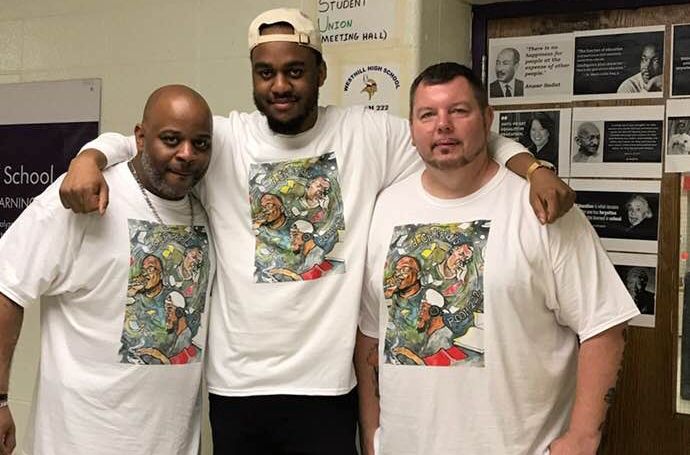
He’s also earned a doctorate in ministry with a focus on chaplaincy, and is currently working on a PhD with a focus on pastoral counseling from the University of Metaphysical Sciences.
Creating Sankofa Spiritual Counseling
In March of this year Celcis founded Sankofa Spiritual Counseling, with a goal of supporting people in their spiritual, and holistic, wellness, healing, and developmental journeys.
His counseling involves both listening, and giving guidance, but he has a hard and fast rule about the one thing he’ll never do, saying, “I can give you my opinion, but I will never tell you this is what you need to believe in. It goes against everything I believe.”
He adds, “Unlike your regular clinician, I don’t prescribe, I don’t tell people go take this, or do that. I might say hey, if you can’t sleep, or you’re having mood disorders, try some St. John’s wort, or garlic. Read this book, watch this movie, do some aroma therapy, try some yoga, but I don’t try to replace a clinician.”
Celcis also notes his counseling is non-denominational, saying, “I work with people who are all different religions, atheists, whatever, to give them that connection to the metaphysical, or at least give them the chance to say ‘I want to explore my spirituality without necessarily feeling the need for religiosity.’”
All of the counseling done by Celcis, and the rest of the Sankofa Spiritual Counseling team, is done completely free of charge, although donations are accepted.
As for his own evolving spirituality, Celcis says, “Christianity for me is not about whether or not Jesus is this, or Jesus is that, it’s more about the reality of God choosing to manifest to people and send messages. As long as you believe in a manifestation of God that brings out the best person in you, that is what I think really matters.”
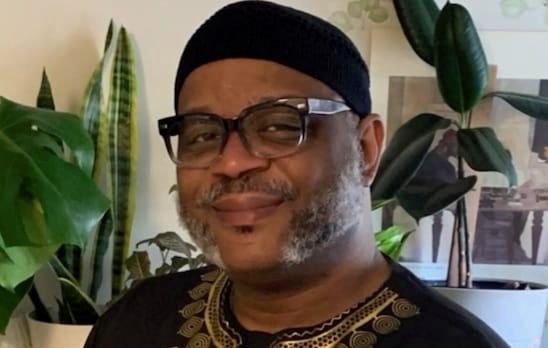
He continued, adding, “Your religious spiritual beliefs should be liberating. I don’t mean they should give you carte blanche to do whatever you want, I’m not saying your belief system should be based on hedonism, what I’m saying is your religion should not bring structure to your life, your religious belief system should give you the grace, and the ability to create your own structure in your life. If someone has to tell you, ‘Don’t do this,’ and, ‘Don’t eat this on Friday,’ you’re not really a believer based on wanting to believe, you are believing based on a fear of consequences.”
Still Ready To Enter The Cypher
Dr. Joe Celcis is a teacher, father, chaplain, and spiritual counselor, but Nemesis Alpha is also still alive and well. Sure, he may have to perform his songs with his lyrics in front of him, but when asked if he can still bring the heat with a freestyle, his response is an emphatic, “Oh yeah!”
Looking back on his previous songs, and performances, he feels that in retrospect his music, and his spirituality have always been intertwined in at least a few ways. “The entirety of my career making music there was always that desire to be revelatory in my lyrics. I kind of ministered through my lyrics,” he says, adding, “My energy was very much pastoral, preaching through the rhyme, or the freestyle, channeling energy as I was rhyming.”
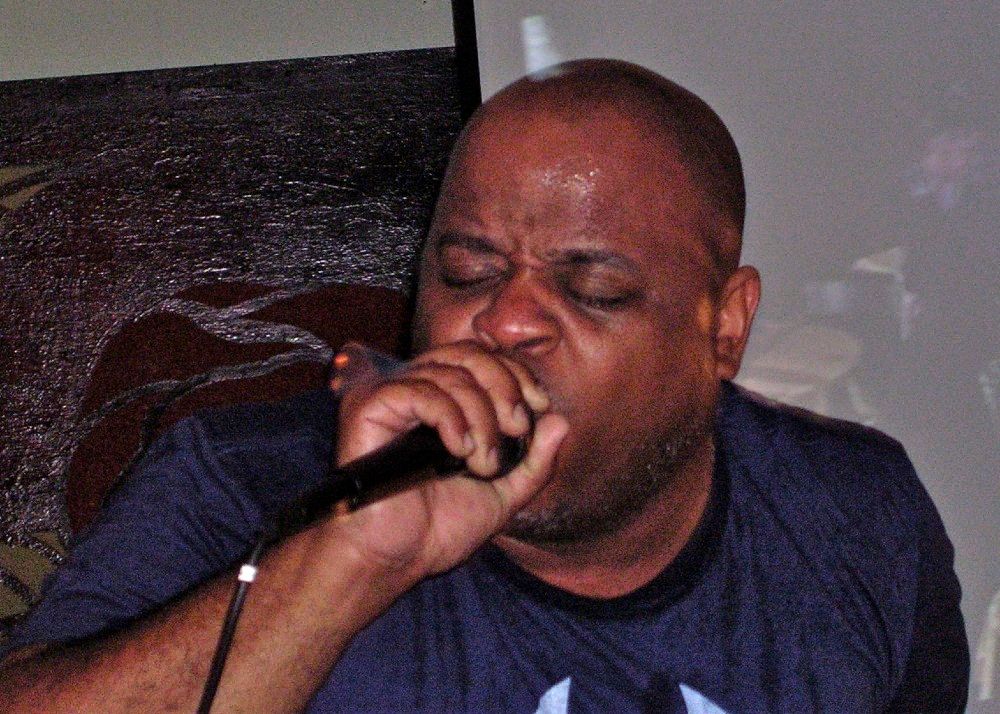
While his rhymes have always been delivered with a preacher-like emotion, he is quick to point out that as a spiritual counselor he does not preach. “A preacher is trying to convince you of something, to get you to believe something,” he explains, “I’m just trying to share information.”
What someone does with that information, he says, is up to them. “To me what’s the point of having free will if you don’t know how to exercise it?”
Over the years Celcis has exercised students’ minds, exercised emcees’ skills, and now he’s ready to help people exercise their spirituality.
For more on Dr. Joe Celcis, and Sankofa Spiritual Counseling, click here.

Comments
Interesting journey. Continued blessings.🙏🏽❤️